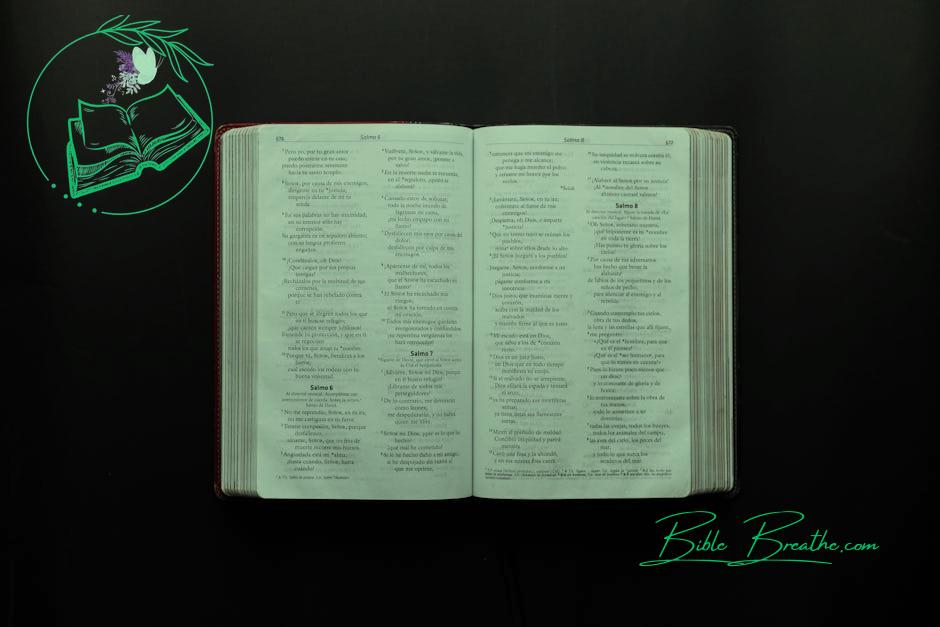Key Takeaways
- Praying Scripture is a powerful way to pray, as it allows you to use God’s own words to express your thoughts and feelings to Him.
- This method of prayer involves taking a verse or passage from the Bible and using it as a guide for your prayer, often by personalizing the verse and making it your own prayer.
- Praying Scripture can help you to stay focused and avoid distractions, as well as to pray in line with God’s will and character.
- It can also help you to overcome anxiety and uncertainty, as you pray God’s promises and truths back to Him.
- One way to pray Scripture is to take a verse and replace the pronouns with your own name, making the verse a personal prayer to God.
- Praying Scripture can be a powerful way to connect with God and to experience His presence and power in your life, as you pray His words back to Him. Journaling can also be a helpful tool in this process.
Introduction
The Power of Prayer in Daily Life
Prayer is the breath of the Christian life. It’s how we communicate with God, and it’s essential for our spiritual growth and well-being. Without prayer, we’re like a ship without a rudder, drifting aimlessly in the ocean of life.
What is Praying Scripture?
So, what does it mean to pray scripture? Simply put, it’s praying God’s Word back to Him. We’re not just talking about reading the Bible; we’re talking about using it as a blueprint for our prayers. We’re taking God’s own words and using them to speak back to Him.
The Purpose of This Article
In this article, we’re going to explore the power of praying scripture and how it can transform our prayer lives. We’ll look at some practical tips on how to get started, and we’ll explore some of the benefits of praying scripture. By the end of this article, you’ll be equipped with the tools you need to take your prayer life to the next level.
Understanding Scripture in Prayer
Photo modified by BibleBreathe.com. Original photo by Luis Quintero on Pexels
The Power of Using Scripture in Prayer
Have you ever felt like your prayers are just wandering thoughts with no direction?
Using scripture in prayer can be a game-changer.
It’s like having a ** roadmap** to guide your prayers, ensuring you’re aligned with God’s will.
Why is this important?
Well, when we pray scripture, we’re tapping into God’s power and authority.
We’re not just relying on our own thoughts and emotions; we’re using the very words of God to express our needs and desires.
Selecting the Right Verses for Prayer
So, how do you choose the right verses for prayer?
Here are a few tips:
- Identify your need: What are you struggling with? What do you need guidance on?
- Find relevant verses: Search for scriptures that speak to your specific need.
- Make it personal: Replace pronouns with your own name or situation to make the verse more personal.
| Need | Relevant Verse | Personalized Prayer |
|---|---|---|
| Anxiety | “Peace I leave with you, my peace I give unto you: not as the world giveth, give I unto you. Let not your heart be troubled, neither let it be afraid.” (John 14:27, KJV) | “Lord, I thank you for your peace that surpasses all understanding. I receive your peace and ask that it calms my anxious heart.” |
The Benefits of Incorporating Scripture into Prayer
So, what are the benefits of using scripture in prayer?
Here are a few:
- Confidence: You’ll feel more confident in your prayers, knowing you’re using God’s own words.
- Authority: You’ll be praying with authority, using the power of God’s Word to back your requests.
- Transformation: As you pray scripture, you’ll begin to see transformation in your life and in your relationship with God.
The devil can predicate on any argument but Scripture; there he finds the ground slipping from under his feet.” – Charles Spurgeon
Steps to Pray Scripture Effectively
Step-by-Step Guide on How to Pray Scripture
Praying scripture can feel like a foreign language if you’re new to it. But trust me, it’s worth learning! Here’s a simple step-by-step guide to get you started:
- Choose a verse: Pick a verse that resonates with you, or one that you’re struggling to understand. It could be a promise, a command, or even a question.
- Read it in context: Don’t just pluck the verse out of thin air. Read the surrounding verses to get a better understanding of what’s going on.
- Personalize it: Replace the pronouns with your own name or “me”. This helps make the verse more relatable and personal.
- Pray it back to God: Speak the verse back to God, using your own words and emotions. This is where the magic happens!
Techniques for Meditating on Verses During Prayer
Meditating on scripture is like savoring a delicious meal. You want to take your time, enjoy the flavors, and let it nourish you. Here are some techniques to help you meditate on verses during prayer:
- Repeat, repeat, repeat: Repeat the verse to yourself several times, letting the words sink deep into your heart.
- Ask questions: Ask God questions about the verse, like “What do you mean by this?” or “How can I apply this to my life?”
- Visualize: Imagine yourself in the scene, or picture what the verse is describing. This helps make the verse more tangible and real.
Examples of Prayers Using Scripture
Here are a few examples of prayers using scripture:
| Verse | Prayer |
|---|---|
| “For God hath not given us the spirit of fear; but of power, and of love, and of a sound mind.” (2 Timothy 1:7, KJV) | “God, I thank you that you’ve given me a spirit of power, love, and a sound mind. Help me to walk in that today, especially when I’m feeling anxious. |
Remember, praying scripture is not a formula, but a way to connect with God on a deeper level. Be creative, be honest, and be patient.
Deepening Your Connection Through Scripture
Photo modified by BibleBreathe.com. Original photo by Luis Quintero on Pexels
Building a Deeper Spiritual Connection Through Scripture
When we pray scripture, we’re not just reciting words – we’re talking to God in a way that honors Him.
It’s like having a conversation with a close friend, but instead of using our own words, we’re using God’s own words to express our thoughts and feelings.
This can be a powerful way to deepen our spiritual connection, because we’re aligning our hearts and minds with God’s.
Ways to Personalize Scripture in Prayer
So, how can we make scripture a more personal part of our prayer lives?
Here are a few ideas:
- Replace names and pronouns: Take a verse and replace the names and pronouns with your own name or a specific situation. For example, “God is my refuge and strength, a very present help in trouble” (Psalm 46:1, KJV) becomes “God is my refuge and strength, a very present help in this difficult situation“.
- Use scripture to express emotions: Find a verse that expresses how you’re feeling, and use it as a prayer. For example, “I’m feeling anxious, Lord, but you say ‘fear not, for I am with you’ (Isaiah 41:10, KJV).
- Pray scripture over specific areas of life: Take a verse and apply it to a specific area of your life, such as relationships or finances. For example, “Lord, I pray that my relationships would be characterized by ‘love, joy, peace, longsuffering, gentleness, goodness, faith, meekness, temperance’ (Galatians 5:22-23, KJV).
Testimonials on the Impact of Praying Scripture
But don’t just take my word for it!
Many people have experienced the power of praying scripture in their own lives.
“Praying scripture has helped me to stay focused on God’s truth, even when my emotions are telling me otherwise. It’s been a game-changer for my faith.” – Rachel
“I was struggling with anxiety, but when I started praying scripture, I felt a sense of peace that I’d never experienced before. It’s been a lifesaver.” – John
Overcoming Challenges in Praying Scripture
Common Obstacles in Praying Scripture
Let’s face it, praying scripture can be tough.
We’ve all been there – we open our Bibles, ready to dive into prayer, but our minds start to wander.
What’s for lunch?, Did I turn off the stove?, or I need to respond to that email…
These distractions can be overwhelming, making it hard to focus on our prayer time.
Strategies to Overcome Distractions During Prayer
So, how can we overcome these obstacles and stay focused on praying scripture?
Here are a few strategies to help you stay on track:
- Find a quiet space: Get away from the noise and distractions of daily life. Find a quiet spot where you can focus on God.
- Set a specific time: Choose a specific time of day that works for you, and stick to it. Consistency is key!
- Use a prayer journal: Writing down your prayers and thoughts can help you stay focused and reflect on God’s Word.
Tips for Staying Consistent in Praying Scripture
Consistency is key when it comes to praying scripture.
Here are a few tips to help you stay consistent:
- Start small: Begin with short prayer sessions and gradually increase the time as you become more comfortable.
- Make it a habit: Incorporate praying scripture into your daily routine, just like brushing your teeth or taking a shower.
- Find accountability: Share your goals with a friend or family member and ask them to hold you accountable.
Call unto me, and I will answer thee, and shew thee great and mighty things, which thou knowest not.” (Jeremiah 33:3, KJV)
Enhancing Your Prayer Life with Scripture
Photo modified by BibleBreathe.com. Original photo by John-Mark Smith on Pexels
Integrating Scripture into Different Types of Prayers
When we think of praying scripture, we often think of just repeating Bible verses back to God.
But it’s so much more than that!
We can use scripture to deepen our prayers, add power to our requests, and bring hope to our struggles.
Here are some ways to integrate scripture into different types of prayers:
- Prayers of thanksgiving: Use Psalm 100:4-5 to express gratitude: “Enter into his gates with thanksgiving, and into his courts with praise: be thankful unto him, and bless his name. For the Lord is good; his mercy is everlasting; and his truth endureth to all generations.”
- Prayers of confession: Pray David’s prayer in Psalm 51:1-2: “Have mercy upon me, O God, according to thy lovingkindness: according unto the multitude of thy tender mercies blot out my transgressions. Wash me thoroughly from mine iniquity, and cleanse me from my sin.”
- Prayers of intercession: Use Jesus’ prayer in John 17:20-21 to pray for unity among believers: “Neither pray I for these alone, but for them also which shall believe on me through their word; That they all may be one; as thou, Father, art in me, and I in thee, that they also may be one in us: that the world may believe that thou hast sent me.”
Using Scripture for Specific Intentions or Needs
Do you have a specific need or intention you’re praying for?
Maybe you’re struggling with anxiety, fear, or doubt.
Maybe you’re praying for healing, provision, or guidance.
Whatever it is, there’s a scripture that can help you pray more effectively.
Here are some examples:
| Need or Intention | Scripture to Pray |
|---|---|
| Anxiety or fear | “Fear thou not; for I am with thee: be not dismayed; for I am thy God: I will strengthen thee; yea, I will help thee; yea, I will uphold thee with the right hand of my righteousness.” (Isaiah 41:10, KJV) |
| Healing | “And the inhabitant shall not say, I am sick: the people that dwell therein shall be forgiven their iniquity.” (Isaiah 33:24, KJV) |
Creative Ways to Incorporate Scripture in Prayer Routines
Want to take your prayer life to the next level?
Here are some creative ways to incorporate scripture into your prayer routines:
- Write out scripture prayers: Write out your favorite scriptures in a journal, and then pray them back to God.
- Create a scripture prayer wall: Write out scriptures on sticky notes and put them on a wall or board. Pray through them each day.
- Use scripture prayer cards: Create index cards with scriptures on them, and then pray through them each day.
Call unto me, and I will answer thee, and shew thee great and mighty things, which thou knowest not.” (Jeremiah 33:3, KJV)
The Power of Declarations in Praying Scripture
Understanding the Concept of Declarations in Prayer
When we pray, we often focus on asking God for things or telling Him about our problems.
But what if we flipped the script and started declaring God’s truth over our lives instead?
It’s like speaking life into our circumstances, rather than just asking for things to change.
Crafting Powerful Declarations Using Scripture
So, how do we craft these powerful declarations?
It starts with getting into God’s Word and finding verses that speak to our specific needs.
Then, we take those verses and personalize them, making them our own declarations of faith.
For example, if we’re struggling with anxiety, we could use Philippians 4:6-7:
“Do not be anxious about anything, but in everything by prayer and supplication with thanksgiving let your requests be made known to God. And the peace of God, which surpasses all understanding, will guard your hearts and your minds in Christ Jesus.” (KJV)
Our declaration could be: “I declare that I am not anxious about anything, because I’ve brought my requests to God and He’s given me His peace that surpasses all understanding.”
Examples of Declarations for Various Aspects of Life
Here are some examples of declarations for different areas of life:
| Area of Life | Declaration |
|---|---|
| Fear and Anxiety | I declare that I am not anxious about anything, because I’ve brought my requests to God and He’s given me His peace that surpasses all understanding. |
| Financial Struggles | I declare that I am blessed and that God supplies all my needs according to His riches in glory by Christ Jesus. |
Remember, these declarations are not just positive affirmations – they’re biblical truths that we’re speaking over our lives.
Reflecting on Your Praying Scripture Journey
Photo modified by BibleBreathe.com. Original photo by MESSALA CIULLA on Pexels
Importance of Reflection in Spiritual Practices
Praying scripture is a journey, not a destination.
It’s essential to reflect on your progress, just like how an athlete reviews their game footage to improve their performance.
Reflection helps you identify what’s working and what’s not, so you can adjust your approach and grow in your prayer life.
Tracking Progress and Growth in Praying Scripture
So, how do you reflect on your praying scripture journey?
Here are some questions to ask yourself:
- What scriptures have you been praying lately? Are they helping you overcome specific struggles or challenges?
- How has your prayer life changed since you started praying scripture? Are you more confident, more patient, or more joyful?
- What obstacles are you facing in your prayer life? Are there any distractions, doubts, or fears holding you back?
Encouragement for Continued Growth in Prayer Life
Remember, praying scripture is a journey of growth, not perfection.
Don’t be too hard on yourself if you miss a day or two (or three, or four…).
Celebrate your small wins, like finally understanding a difficult scripture or experiencing a breakthrough in your prayer life.
As the great pastor and author, Charles Spurgeon, once said, ” Prayer is the slender nerve that moves the muscle of omnipotence.”
Keep praying, and God will move mountains in your life.
Resources for Praying Scripture
Recommended Books for Praying Scripture
If you’re looking to dive deeper into praying scripture, here are some recommended books to get you started:
- “The Power of Praying God’s Word” by Joyce Meyer
- “Praying the Bible” by Donald S. Whitney
- “The Heart of Prayer” by J.I. Packer
These books will give you a solid foundation for understanding how to pray scripture and make it a part of your daily life.
Online Communities and Tools for Support and Inspiration
But books aren’t the only resource out there! Here are some online communities and tools to help you stay inspired and motivated:
- Scripture Prayer Journals: A website dedicated to providing prayer journals and resources to help you pray scripture.
- Praying Christian Women: A Facebook group for women who want to pray scripture and support one another in their faith journeys.
- Verse mapping: A tool that helps you create visual representations of scripture to aid in your prayer and meditation.
Additional Resources for Deepening Understanding of Scripture in Prayer
Want to take your prayer life to the next level? Here are some additional resources to help you deepen your understanding of scripture in prayer:
- Bible Gateway: A website that provides access to multiple Bible translations, study resources, and devotionals.
- She Reads Truth: A website and community that provides daily devotionals and scripture studies.
- RightNow Media: A platform that offers video Bible studies and resources to help you grow in your faith.
Remember, praying scripture is a journey, and it’s okay to take it one step at a time. These resources are here to support and inspire you along the way!
Frequently Asked Questions About How To Pray Scripture
What are some common scriptures to pray?
Some popular scriptures to pray include Psalm 23, Philippians 4:6-7, Jeremiah 29:11, Isaiah 40:31, and Romans 8:28. These verses offer comfort, hope, and guidance, making them great starting points for prayer. You can also use scripture to pray for specific needs, like healing or protection.
How Can I Improve My Prayer Life?
To improve your prayer life, set a consistent schedule, create a quiet and distraction-free space, and start a prayer journal to track your progress. Also, try different prayer styles, such as meditation, journaling, or praying out loud, to find what works best for you.
What are some benefits of praying scripture?
Praying scripture brings clarity, conviction, and comfort. It helps you connect with God’s heart, allowing His words to become your own prayers. It also strengthens your faith, builds confidence, and brings peace in uncertain times. Additionally, praying scripture helps you stay focused on God’s promises and not your emotions.





